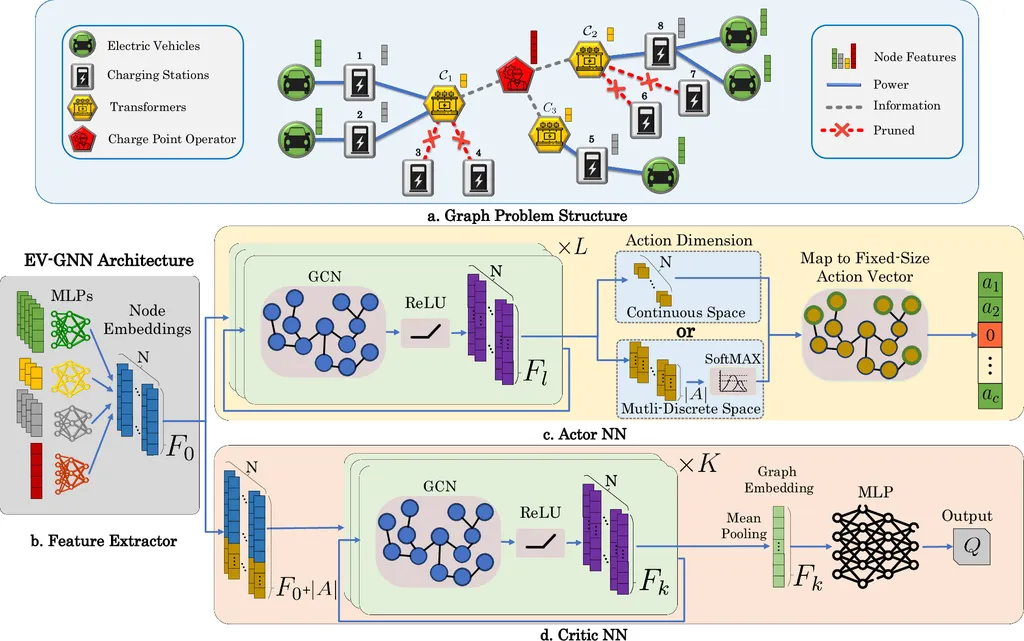In a significant stride towards optimizing the burgeoning electric vehicle (EV) infrastructure, researchers have introduced a novel solution that promises to enhance the scalability and efficiency of city-wide EV charging systems. The study, led by Stavros Orfanoudakis from the Intelligent Electrical Power Grids department at Delft University of Technology, was recently published in the journal *Applied Network Science*.
As the global shift towards electric mobility accelerates, the challenges of managing large-scale EV charging have become increasingly complex. The new solution, dubbed EV-GNN, leverages the power of graph neural networks (GNNs) to address these challenges from the perspective of Charging Point Operators (CPOs). By integrating GNNs with reinforcement learning (RL) algorithms, the researchers have developed a system that not only captures the uncertainties in EV behavior but also significantly improves the scalability and sample efficiency of classic RL algorithms.
“EV-GNN represents a paradigm shift in how we approach the optimization of EV charging infrastructure,” Orfanoudakis explained. “By combining GNNs with RL, we’ve created a flexible architecture that can be adapted to a wide range of problems, from continuous to multi-discrete and discrete action spaces.”
The innovative approach employs a branch pruning technique, which enhances the system’s ability to handle large-scale coordination of EVs. This is particularly crucial for maintaining electrical grid stability and ensuring efficient use of charging infrastructure as the number of EVs on the road continues to grow.
Extensive experimental evaluations have shown that EV-GNN outperforms state-of-the-art RL algorithms in both scalability and generalization across diverse EV charging scenarios. The system has demonstrated notable improvements in solving both small- and large-scale problems, making it a promising tool for the energy sector.
The commercial implications of this research are substantial. As cities worldwide grapple with the challenges of integrating EVs into their existing infrastructure, solutions like EV-GNN offer a pathway to more efficient and stable energy management. The flexibility of the EV-GNN architecture means it can be combined with most state-of-the-art deep RL algorithms, providing a versatile tool for addressing a variety of problems in the energy sector.
“This research not only advances our understanding of how to optimize EV charging but also paves the way for future developments in the field,” Orfanoudakis added. “The potential applications of EV-GNN extend beyond EV charging, offering insights into other areas of energy management and grid stability.”
As the energy sector continues to evolve, innovations like EV-GNN will play a crucial role in shaping the future of electric mobility and sustainable energy solutions. The research published in *Applied Network Science* marks a significant step forward in this journey, highlighting the importance of interdisciplinary approaches in tackling complex energy challenges.

